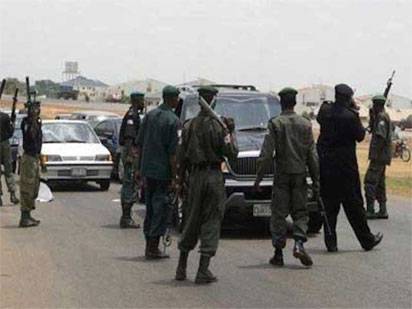Right of Nigeria Police Force to Demand For Driver’s License and Other Vehicle Documents.
By Onyekachi Umah,Esq.
(Tip 120)
Often drivers argue that police officers are for crimes and should not do the work of the members of Federal Road Safety Commission. So, some drivers become hostile when a police officer demands for drivers license, vehicle documents and road worthiness certificates. They prefer police officers to come in when there is a crime or reasonable suspicion of crime. It is also argued that the traffic department of the Nigerian Police is only meant to control road traffic and not to search and demand for licenses. The best way to settle the dust raised by the above arguments is to look at the various laws establishing the government institutions (the Nigeria Police Force and the Federal Road Service Commission).
Section 4 of the Police Act 2020, provides the functions of the Nigeria Police Force to include:
- The Police Force shall—
“(a) prevent and detect crimes, and protect the rights. and freedom of every person in Nigeria as provided in the Constitution, the African Charter on Human and Peoples Rights and any other law ;
(b) maintain public safety, law and order ;
(c) protect the lives and property of all persons in Nigeria ;
(d) enforce all laws and regulations without any prejudice to the enabling Acts of other security agencies;
(e) discharge such duties within and out si de Nigeria as may be required of it under this Act or any other law ;
(f) collaborate with other agencies to take any necessary action and provide the required assistance or support to persons in di stress, including victims of road accidents, fire disasters, earthquakes and floods;
(g) facilitate the free passage and movement on highways, roads and streets open to the public;
(h) adopt community partnership in the discharge of its responsibilities un der this Act or under any other law ; and
(i) vet and approve the registration of private detective schools and private investigative outfits.”
Also, the Federal Road Safety Commission (Establishment) Act 2007 provides the functions of the Federal Road Safety Commission. Section 5 of the Act lists the functions including;
“(f)The establishment, investigation and certification of driving school;
(g) Designing and production of driver’s licence and vehicle number plates to be used by various categories of vehicles;
(h) Registration, licensing, road worthiness of vehicles, driver’s licenece, use of expressways, use and construction of vehicle highways codes and in general on human, vehicular and environmental factors to make the highways safe;
(i) establishment of road side clinics for the treatment accident victims;
(j) establishment and regulation of ambulance services;
(k) the speed which motor vehicles of any class or description may be driven either generally on any specified highways or within a defined area,
(l) the construction of motor vehicles and trailers, and ….”
Clearly, the Nigerian police is established to protect live and property as well as to maintain law and order. Hence, Nigerian police has general powers to do all that any security organisation or agency is specifically authorised to do, including military duties within and outside Nigeria.w
References:
1. Section 4 of the Police Act, 2020
2. Section 5 of the Federal Road Safety Commission (Establishment) Act 2007
#DailyLawTips
#SabiLaw
#LearnNigerianLaws
****************************************************************************************
This work is published under the free legal awareness project of Sabi Law Foundation (www.SabiLaw.org) funded by the law firm of Bezaleel Chambers International (www.BezaleelChambers.com). The writer was not paid or charged any publishing fee. You too can support the legal awareness projects and programs of Sabi Law Foundation by donating to us. Donate here and get our unique appreciation certificate or memento.
DISCLAIMER:
This publication is not a piece of legal advice. The opinion expressed in this publication is that of the author(s) and not necessarily the opinion of our organisation, staff and partners.
PROJECTS:
🛒 Take short courses, get samples/precedents and learn your rights at www.SabiLaw.org
🎯 Publish your legal articles for FREE by sending to: eve@sabilaw.org
🎁 Receive our free Daily Law Tips & other publications via our website and social media accounts or join our free whatsapp group: Daily Law Tips Group 5
KEEP IN TOUCH:
Get updates on all the free legal awareness projects of Sabi Law (#SabiLaw) and its partners, via:
YouTube: SabiLaw
Twitter: @Sabi_Law
Facebook page: SabiLaw
Instagram: @SabiLaw.org_
WhatsApp Group: Free Daily Law Tips Group 5
Telegram Group: Free Daily Law Tips Group
Facebook group: SabiLaw
Email: lisa@sabilaw.org
Website: www.SabiLaw.org
ABOUT US & OUR PARTNERS:
This publication is the initiative of the Sabi Law Foundation (www.SabiLaw.org) funded by the law firm of Bezaleel Chambers International (www.BezaleelChambers.com). Sabi Law Foundation is a Not-For-Profit and Non-Governmental Legal Awareness Organization based in Nigeria. It is the first of its kind and has been promoting free legal awareness since 2010.
DONATION & SPONSORSHIP:
As a registered not-for-profit and non-governmental organisation, Sabi Law Foundation relies on donations and sponsorships to promote free legal awareness across Nigeria and the world. With a vast followership across the globe, your donations will assist us to increase legal awareness, improve access to justice, reduce common legal disputes and crimes in Nigeria. Make your donations to us here or contact us for sponsorship and partnership, via: lisa@SabiLaw.org or +234 903 913 1200.
***********************************************************************************




















































